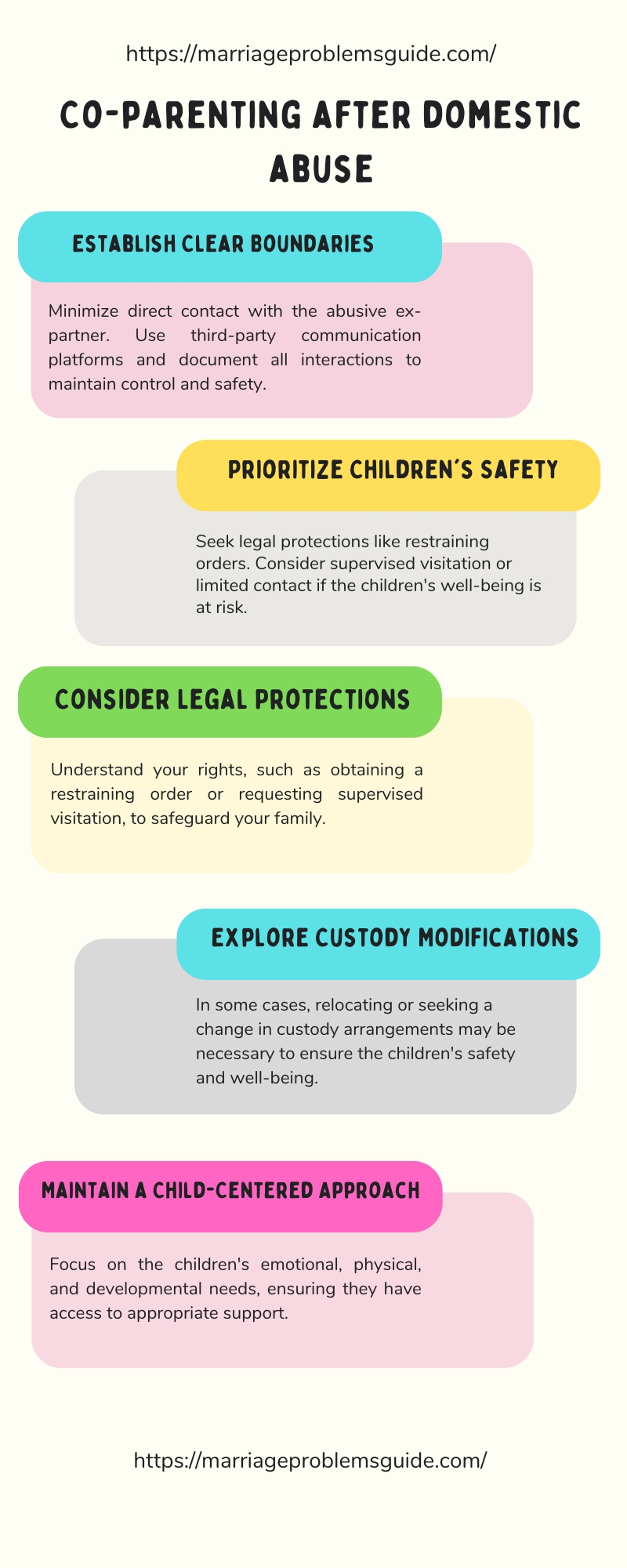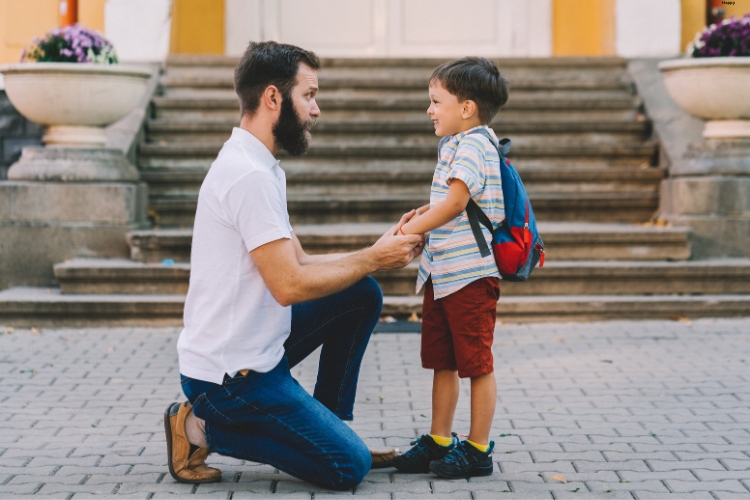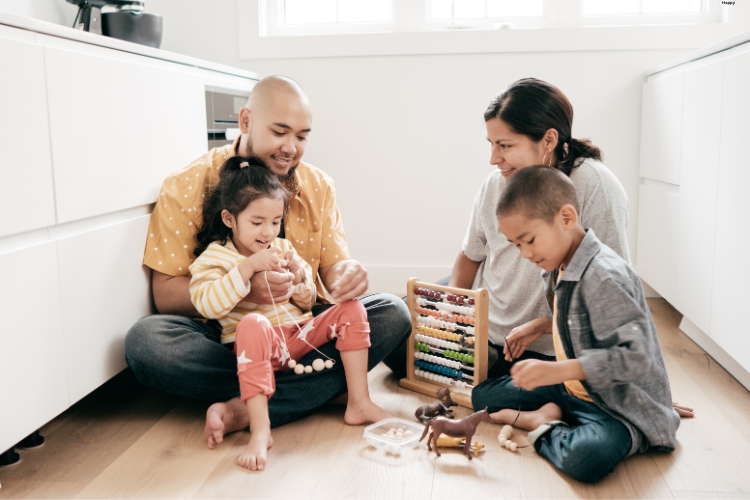Navigating the complexities of co-parenting can be a daunting task for any family, but for those who have experienced the trauma of domestic abuse, the journey can be even more arduous.
In the aftermath of an abusive relationship, the need to prioritize the well-being of the children often clashes with the lingering effects of the abuse, creating a delicate balance that requires immense strength and resilience.
This blog post aims to provide compassionate and empowering strategies for co-parenting effectively while also addressing the unique challenges that survivors of domestic abuse may face.
Understanding the Impact of Domestic Abuse on Co-parenting
- The trauma of domestic abuse can have a profound and long-lasting impact on the dynamics of co-parenting.
- Survivors may struggle with feelings of fear, anxiety, and PTSD when interacting with the abusive ex-partner, making it difficult to engage in productive co-parenting discussions.
- The abusive ex-partner may continue the cycle of manipulation and control through the co-parenting process, using the children as pawns or undermining the survivor’s parenting decisions.
Establishing Boundaries and Prioritizing Safety
- Setting clear and firm boundaries is crucial, such as minimizing direct contact with the abusive ex-partner and documenting all interactions.
- Prioritizing the safety and well-being of the children is paramount, which may involve seeking legal protections or considering limited/supervised visitation for the abusive ex-partner.
- Working with legal counsel, mental health professionals, and domestic abuse advocates is essential to ensure the children’s and the survivor’s needs are met.
Fostering Resilience and Self-Care
- Engaging in regular self-care activities, such as therapy, support groups, or relaxation techniques, can help the survivor manage the stress and emotional turmoil associated with co-parenting after abuse.
- Establishing a strong support network, whether through family, friends, or domestic abuse organizations, can provide a sense of community and validation during this difficult time.
- Cultivating a sense of empowerment and agency can help survivors develop the resilience needed to navigate the co-parenting landscape with greater confidence and effectiveness.
Collaborating with Professionals and Community Resources
- Engaging with a network of professionals, including therapists, counselors, family law attorneys, and domestic abuse organizations, can provide invaluable guidance and support.
- Domestic abuse organizations and support groups can offer a wealth of resources, from legal advocacy to emotional support and parenting workshops.
- In some cases, the involvement of a parenting coordinator or a neutral third-party mediator may be necessary to facilitate effective communication and decision-making between the co-parents.
Prioritizing the Children’s Well-being
- Maintaining a positive, child-centered approach and ensuring the children have access to appropriate support and resources, such as counseling or support groups, is crucial.
- Working closely with the children’s teachers, healthcare providers, and other relevant professionals can help address any concerns and meet the children’s needs.
- Considering the possibility of supervised visitation or limited/no contact between the children and the abusive ex-partner may be necessary if the children’s safety and well-being are at risk.
Navigating Legal Considerations
- Survivors may need to seek legal counsel to protect their parental rights, secure appropriate custody arrangements, and ensure the abusive ex-partner is held accountable.
- Understanding legal rights and options, such as obtaining a restraining order or requesting supervised visitation, is important.
- In some cases, the survivor may need to consider the possibility of relocating or seeking a modification of the custody agreement to ensure the children’s safety and well-being.
Conclusion
- Co-parenting after domestic abuse requires strength, resilience, and a steadfast commitment to the well-being of the children.
- By establishing clear boundaries, fostering self-care and resilience, collaborating with professionals and community resources, and prioritizing the children’s needs, survivors can navigate this challenging terrain and reclaim their power.
- Remember, there are countless resources and support systems available to help survivors of domestic abuse find their voice, regain their strength, and build a brighter future for themselves and their children.
Key Takeaways
| Takeaway | Description |
|---|---|
| Impact of Domestic Abuse on Co-parenting | Domestic abuse can profoundly affect trust, communication, and the potential for continued manipulation and control in the co-parenting relationship. |
| Establishing Boundaries and Prioritizing Safety | Setting clear boundaries, minimizing direct contact, and ensuring the children’s safety are crucial steps. |
| Fostering Resilience and Self-Care | Engaging in self-care activities, building a support network, and cultivating a sense of empowerment can help survivors develop the resilience needed. |
| Collaborating with Professionals and Community Resources | Seeking guidance from therapists, domestic abuse organizations, and legal experts can provide invaluable support. |
| Prioritizing the Children’s Well-being | Maintaining a child-centered approach, ensuring access to appropriate resources, and considering limited/supervised visitation are essential. |
| Navigating Legal Considerations | Understanding legal rights, securing appropriate custody arrangements, and potentially modifying agreements may be necessary. |









